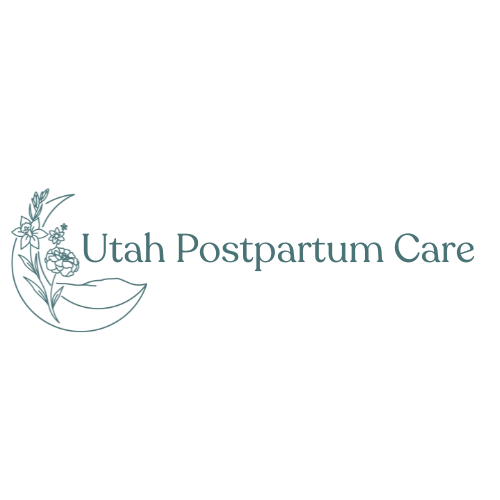Choosing Your Pregnancy Care Provider: How to Find the Right Fit for You
Choosing Your Pregnancy Care Provider: How to Find the Right Fit for You

I’ll never forget the providers I chose on two of the most important days of my life. I look back with a bit of happiness for one and regret for the other. When I was young and pregnant with my first, I thought it was just me and an OB, and that was it. I met with two different OBs before settling on one who was already a family physician and would be our pediatrician, too. It was an all-in-one setup, and it worked well.
But my second pregnancy was a different story. I wanted to switch things up, so I started seeing a new OB who opened our very first appointment by saying he didn’t really support VBACs but was really good at cesarean births. That was my sign, and I switched providers. And here’s something I want every pregnant person to hear: it is NEVER too late to change your provider.
You’re about to go through one of the most life-changing experiences of your life, with a story you will never forget. Don’t let your provider be the part of that story you wish you could rewrite.
This blog will walk you through the main types of pregnancy providers and help you figure out who will support you best, so you can step into birth feeling confident, informed, and truly cared for.
Understanding Your Options
OBGYNs
Obstetricians are doctors who specialize in pregnancy, childbirth, and reproductive health. They typically work in hospital settings and are trained to handle everything from routine prenatal care to high-risk pregnancies. They can perform surgical births like C-sections and manage medical interventions when needed. If your pregnancy has complications or you want to have quick access to every medical option available, an OBGYN might be your best fit.
Hospital-Based Midwives
Certified Nurse Midwives (CNMs) who work in hospitals combine medical training with a more holistic approach to childbirth. They usually support low-risk pregnancies, encourage unmedicated or low-intervention births, and advocate for your preferences while still having all the hospital resources right there if you need them. If you like the idea of a midwife but you want the safety net of a hospital, this can be a great choice.
Out-of-Hospital Providers
This group includes Certified Professional Midwives (CPMs), CNMs, and traditional midwives who attend births in homes or birth centers. They focus on low-risk pregnancies and emphasize unmedicated, low-intervention birth experiences. If you want a deeply personalized, intimate birth setting and are comfortable with transferring to a hospital in rare cases, this could be the path for you.
Things to Think About Before Deciding
1. What Kind of Birth Experience Do You Want?
Before choosing a provider, picture how you’d love your birth to feel. Do you want it calm and unhurried? Do you want all available pain relief options? Are you hoping to avoid unnecessary interventions? Your preferences are important, and they should guide your choice.
If you want an unmedicated or low-intervention birth, you may feel more supported by midwives, whether at home, a birth center, or in a hospital. If you want immediate access to pain relief, or your pregnancy is high-risk, a hospital-based OBGYN might be a better fit.
2. How Your Health and Pregnancy Play a Role
Your pregnancy journey is unique, and your health history matters. If you’ve had complications before, have a chronic health condition, or you're carrying multiples, you may want the extra reassurance that comes with an OBGYN. They have the training and resources to handle complex situations and perform surgical births when needed.
If your pregnancy is considered low-risk, a midwife can be a wonderful fit. Midwives are skilled at supporting healthy pregnancies and deliveries. They also have plans for transferring care to a hospital if something unexpected comes up.
3. Where You Give Birth Matters
Your birth setting is more than just a backdrop; it shapes your experience, your comfort level, and sometimes even the outcome. Let’s talk about what each option really feels like.
Hospital
Think of a hospital as the all-inclusive resort of birth settings. You have medical resources at your fingertips, from emergency care to advanced monitoring. They also provide pain relief options, such as an epidural or IV. High-risk pregnancies can be managed safely in a hospital, and surgical births can happen quickly if needed. While hospitals can sometimes feel busy or clinical, for many families, the reassurance of having a full team, operating rooms, and every possible tool down the hall outweighs anything else. If having that safety net helps you relax, a hospital may feel like the right home base for your birth story.
Birth Center
Birth centers are the cozy middle ground, home-like and inviting, but with trained staff and certain medical equipment on hand. Picture warm lighting, comfortable furniture, big birthing tubs, and a team that knows your birth plan by heart. They are typically run by midwives and designed for low-risk pregnancies, offering lots of freedom to move, eat, and labor how you want. The vibe is slower and more personalized than a hospital, but if something unexpected comes up, they have plans in place to transfer you quickly for more advanced care. If you want a space that feels calm and personal, but still want the reassurance of having backup available, a birth center might check every box.
Home
Home birth is the ultimate comfort zone. You are in your own space, your own bed, with your own smells, favorite foods, and the exact people you want by your side. You can dim the lights, play your playlist, light candles, and keep it as intimate as you want. Certified Professional Midwives and some Certified Nurse Midwives attend home births for low-risk pregnancies, bringing portable medical supplies and skills to monitor you and baby closely. While you’d need to transfer to a hospital if complications arise, many families love the control, privacy, and peace that come with giving birth where they live and love.
4. How Your Provider Makes You Feel
This might be the most important because you should feel safe, heard, comfortable, and supported at every appointment. Ask yourself:
- Do they listen without rushing you?
- Do they explain your options clearly?
- Do they respect your preferences?
- Do you leave appointments feeling supported and not dismissed?
If the answer is “no” to any of these, it’s worth considering a change in providers. his is your pregnancy and your birth. The right provider will remember that as well.
Some Final Thoughts
Choosing a pregnancy care provider isn't just a medical decision. It’s deeply personal. You deserve someone who aligns with your values, supports your birth plan, and gives you confidence every step of the way. Whether that’s an OBGYN, a hospital midwife, or an out-of-hospital provider, the most important thing is that you feel respected, safe, and empowered.
FAQ
How do I know if my provider is really listening to me?
You should feel heard, respected, and taken seriously during every appointment. If you feel brushed off or rushed, that’s a red flag.
Can I meet with more than one provider before deciding?
You absolutely should! You can set up multiple consultations/appointments to see who feels like the best fit before committing.
Do I need to choose the same provider for every pregnancy?
Not at all. Every pregnancy is different, and you may have different needs or preferences next time.
What if I change my mind halfway through pregnancy?
It’s never too late to switch providers if something feels off. Your comfort and trust matter more than settling and sticking it out.











